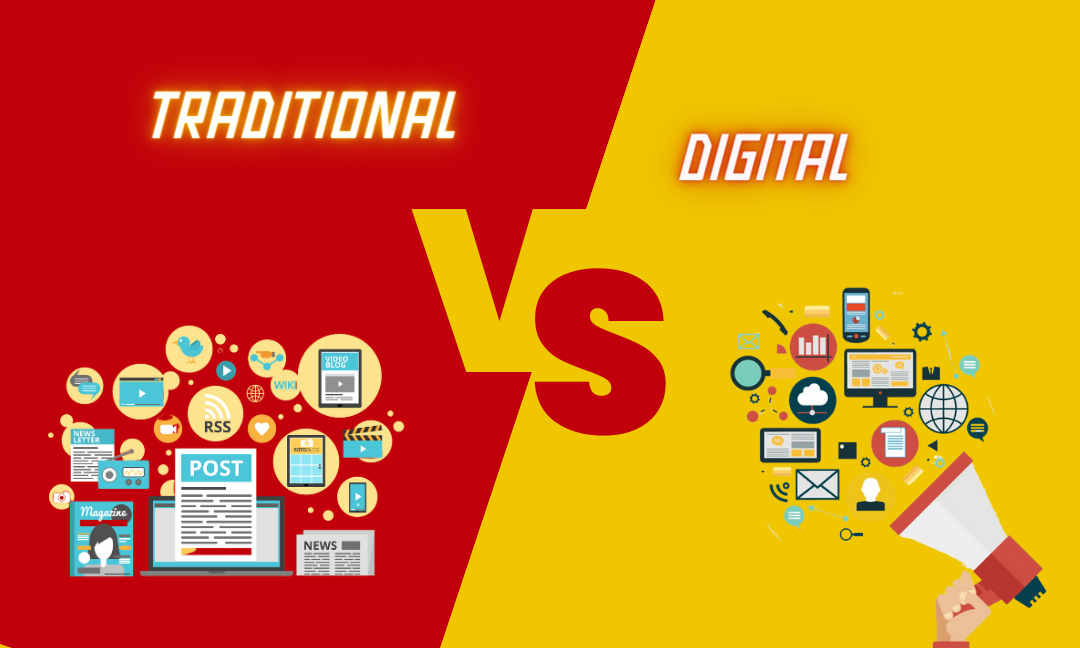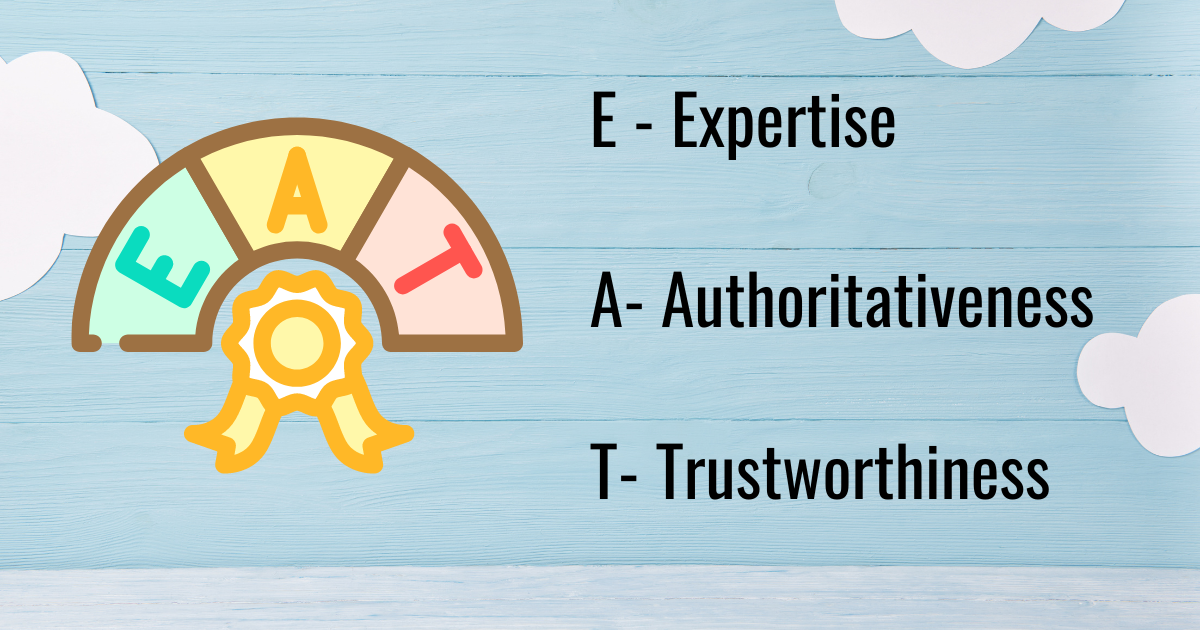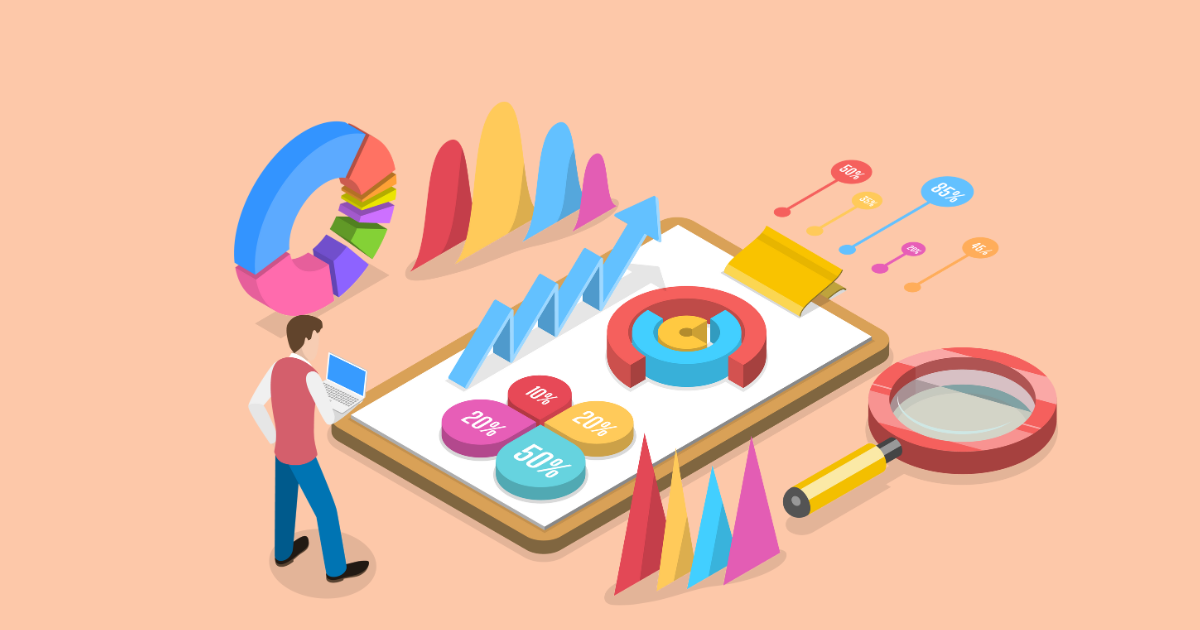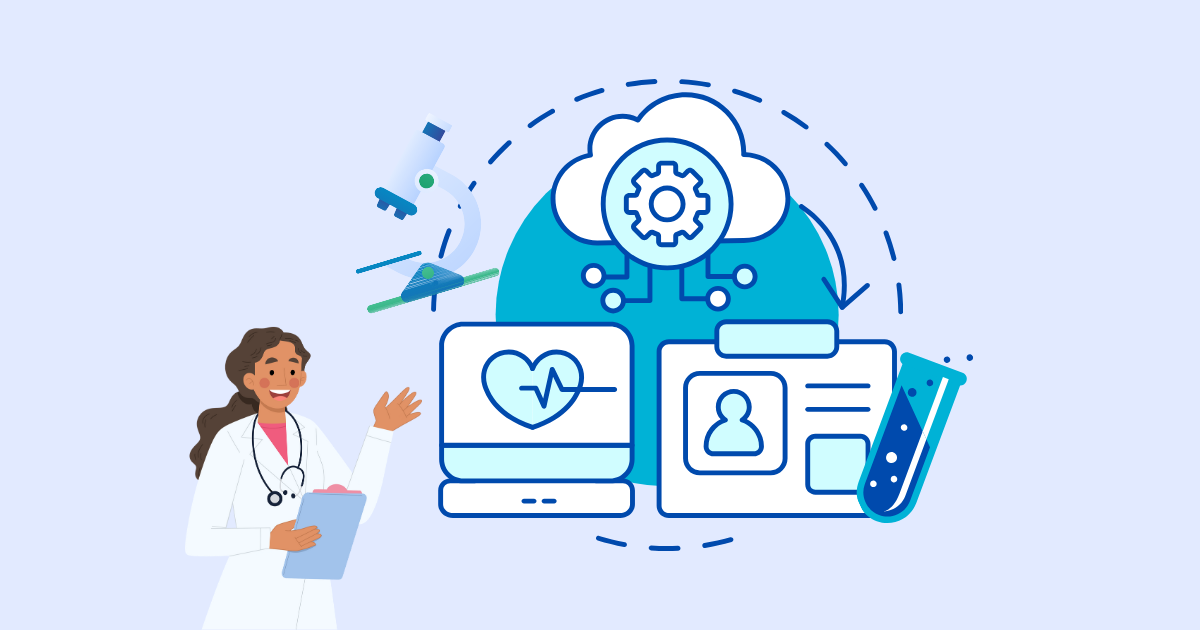Table of Contents
Technology is rapidly progressing and has led many businesses from different industries to use digital advertising and campaigns as an effective strategy to increase sales, build brand recognition and boost conversion rates.
Digital marketing is increasingly popular and drawing the interest of more brands. To navigate this expanding realm of marketing effectively, businesses need to understand the differences between digital (or online marketing) and conventional marketing - taking into account factors like product, audience target, budget, etc. In this article, we'll look at these distinctions between them both. Today, if you need to get better than your competition, it’s great to get in touch with the top digital marketing company.
What is traditional marketing?
The era of traditional marketing was amazing. Businesses were using print ads, billboards, television commercials that captured attention. Direct mails were also used. Are you wondering why these methods were successful? Well, because at that time, they used to reach a wide audience. They were the best when it was about capturing audience attention.
Read More: Digital Marketing Trends
What is digital marketing?
Today, it’s all about digital ads and marketing in the market. Isn’t it? They have literally worked perfectly in engaging and interacting with their target audiences. The best part is that most businesses are now utilizing these strategies to contact the target audiences online. It also makes sure that both brands and audiences are communicating with each other.
Understanding the Differences Between Traditional and Digital Marketing
As a business in this competitive world, you should have an idea of the differences between these two big players.
Digital strategies implemented with expertise can help businesses achieve success quickly.
Impact of Internet and Technologies:
Greater Reach: Digital marketing is more accessible and straightforward to implement than traditional methods of promotion, offering businesses more reach through digital platforms than any other medium. Businesses can reach wider audiences thanks to digital ads' more flexible nature than television or newspaper ads - expanding visibility while expanding reach.
Customization and Personalization: Digital marketing enables businesses to tailor messages directly to individual customer preferences and interests using data analytics and advanced targeting tools for campaign creation. This personalized approach fosters stronger bonds with customers while driving increased engagement levels.
Real-time metrics: Digital marketing provides marketers with real-time metrics and analytics. They can now accurately measure the success of campaigns. Tracking key indicators, like website traffic, conversion rate and engagement level will allow you to accurately gauge the success of any marketing initiative. Utilizing data-driven strategies allows businesses to make smarter decisions and strengthen their strategies.
Digital Marketing Enables Two-Way Communication: Digital marketing plays an integral part in providing two-way dialogues between businesses and customers. This increases engagement. Businesses can reach their audiences directly on social media platforms. They can also use blogs, live chats, and live streams.
Flexibility and Agility: Digital marketing allows businesses to respond quickly based on customer feedback and market trends. Its greater adaptability than traditional advertising, allows it to react faster when consumer preferences change.
Content Sharing Is Flexible: Digital marketing offers businesses multiple distribution options that meet varying consumer tastes and habits. Enterprises can utilize various content formats from engaging videos and blog posts, to visually appealing infographics and interactive quizzes to capture audiences across multiple channels and connect with customers in a multitude of ways that ultimately maximize engagement and brand recognition.
Environment Friendly: Digital marketing offers businesses an alternative that's greener to traditional forms of advertising, helping contribute to environmental sustainability in an effective and green manner. Delivered electronically instead of printed ads or physical signs, digital ads reduce paper waste while simultaneously, cutting energy consumption associated with traditional media distribution - contributing to a healthier marketing ecosystem and helping make our world greener overall. Businesses can embrace digital marketing for this cause.
Conclusion
Digital marketing has evolved over time from being static, generalized method to one which is dynamic, data-driven and personalized. Rapid technological developments continue to alter its foundation while placing greater importance on staying abreast with emerging techniques and trends - meaning digital marketing will only continue to change as businesses adapt accordingly.
Are you looking for the best digital marketing agency in Delhi? Well, your wait is over! Reach out to MasterBazar and our experts will take your business to a new level of success.
Author - Sunny J.
Sunny J. is a seasoned content writer with 8 years experience in web development, software development and digital marketing content across multiple formats. He leverages his skills in crafting curated content on the web technology and digital marketing. In his personal time, He enjoys reading article and being up-to-date on trends in marketing and website design.





